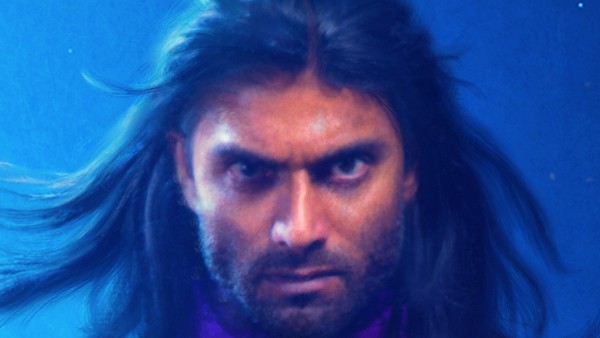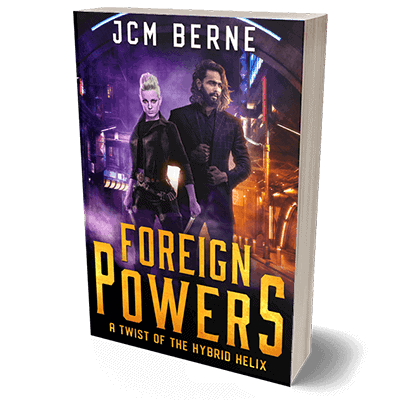I am white (and male, and straight, in case it matters: being Jewish is as close as I get to marginalized, and in the area where I grew up it was not a big deal). My main character, Rohan, is not – he is only half human, but that half is of Indian descent, and brown. His alien heritage does not influence his appearance, so growing up in Vancouver, he was definitely not looked upon or regarded as a white person. This is not a spoiler; when having my covers created I distinctly wanted it clear that Rohan is not white.
A few people have asked me why I chose a MC who does not match my own ethnicity.
I thought I’d answer with a meandering discussion about aboutness, inclusion, and literary ethics.
What does ‘about’ mean?
Before we discuss inclusion, and the ethics of inclusion, I think we have to be explicit about a few terms, starting with ‘aboutness.’ Most of the time, stories have characters, and those characters belong to certain groups. They are white, Black, or Asian; straight, gay, bi, or ace. They are cis or trans. Native to the country or immigrants. Disabled or not. You get the idea.
But I maintain that the fact that a story contains a person who belongs to one of these categories does not make that story ABOUT being in that category.
I’m sure you can think of plenty of examples. Blade – the Marvel character – is Black, but most of the stories about him have nothing to do with being Black in America. The story (mostly) is NOT ABOUT being Black, despite the MC being Black. Compare that to The Wire (an amazing TV show), where the story is very much ABOUT the racial identity of all the characters. Finn in Star Wars is Black, but I don’t think that movie says a lot about Black identity or experiences.
To tell if a story is ABOUT a group of people, there’s a simple test. Imagine that the character in question switched categories – imagine the character in question were NOT part of that group – how much, if any, of the story would change?
If someone writes a coming-out story about a gay or trans teen, the entire story would make no sense if that character were straight or cis. If Finn were white, not one line of dialogue in any Star Wars movie would have to be altered. But if Huck Finn were Black, the entirety of the book would have had to be re-written.
If Rohan were white, some, but really not much, of Wistful Ascending would change. The core of the story could remain untouched, and we could actually measure and give this some kind of score – what % of lines would need to be rewritten if Rohan were white? The answer is, some, but not many.
I watched an episode of Legends Of Tomorrow (great show, btw) the other day where a character took a selfie with someone in the background. The background character, who had no lines and only about 5 seconds of screen time, was in a hijab (something I noticed mostly because it would never have happened on a network TV show 10 years ago). This story had a hijab-wearing woman in it but was not ABOUT Muslim people – and the way to verify that is to ask, what would need to change in the story to make this background character non-Muslim? And the answer is, basically, nothing.
Are Stories ABOUT Ethnicities Better?
I am NOT saying that.
So What ARE You Saying?
There are two very different things we mean when we talk about representation, or inclusion, of minority groups in any medium. Two very different things that progressives are asking for when we ask for MORE representation.
ONE level of representation is simply having characters of a certain category PRESENT in popular media. This is NOT necessarily making stories ABOUT that category, but simply having it represented. Making background characters diverse (historically, extras in films were overwhelming white and male).Writing a story about a band of hackers taking on an evil corporation? How about making some of them gay, female, disabled, or Black?
The REASON this is important is that many people in minority categories feel alienated from society BECAUSE they don’t feel represented in popular media. If you’re anything other than white, straight, and male, it’s hard to find people who LOOK like you in most media. You feel like you don’t belong to the popular world. You don’t see heroes who LOOK like you, and that’s a bit soul crushing (don’t take my word for this – it’s easy to find stories of, say, Black children who see a Black superhero and get incredibly excited about it).
The SECOND level of representation involves telling stories that essentially belong to these groups. Take The Wire, about crime and policing in poor Baltimore neighborhoods, or any story about a teen homosexual coming out to their friends or parents. Those stories would make NO sense (or have to be extensively changed) if the main characters swapped identities. In those cases, it’s not just characters who LOOK like you on screen (or in text), it’s about the value of having non-majority stories told so we can ALL learn from them.
Both of these things are incredibly important.
HOWEVER, I think it’s very, very difficult for a person who is NOT part of an underrepresented minority to write stories ABOUT the experiences of that minority.
What the hell do I know about growing up gay? I can research, and investigate, but my understanding will NEVER be as authentic as that of a gay writer. What do I know about growing up female? Or Black? Not nothing, but not nearly as much as a reasonably self-aware woman or Black person.
What’s Your Point, Joe? For Real This Time
Telling stories ABOUT being in a marginalized category is difficult, and maybe impossible, for authors who don’t belong to that group. There may be some edge case of a person so immersed in a culture not-their-own that they are able to write about it, but it is an edge case, not the norm.
Which means that the job of telling stories ABOUT being Black, gay, disabled, trans, female, etc., properly belongs mostly (or entirely) to people who ARE those things.
BUT (let me repeat that… BUT) that is no excuse for failing to include the FIRST type of representation.
I could have made Rohan white. I could have made Wei Li and Ursula male. In fact, I still could – very little of the story would change.
However, I’d be wasting an opportunity. By making these important characters not-the-usual, I create situations where some young brown person or lady gets that extra little charge of seeing a hero in print who looks like THEM.
I am not going to delude myself and pretend that I’m writing stories ABOUT being brown or female. I’m NOT QUALIFIED to do that. However, I AM doing something very small for my readers by trying to diversify my cast.
That’s all it is. A small thing.
Answer the Question, Already!
I had two parallel reasons to make Rohan Indian.
First, I believe that content creators in general have a responsibility to represent the underrepresented, for the reasons I’ve explained above. A world where all the fiction is about the majority is not a good or just world, and we all suffer when that’s the case.
Second, when I have to make a choice about ethnicity or gender of a character, I like to make that choice a little homage to something I love. When there is some quality of the character that falls short of aboutness, I make it a personal joke. Why does Rohan like tequila and not, say, Scotch? It makes no difference to the story, but I love tequila, and I don’t particularly love Scotch.
I made Rohan Indian (and Telugu specifically) as a sort of private shout-out to certain South Asian films I love and that have influenced my writing.
There is a category of Telugu films that I love fiercely where the main character is hyper competent and has very little inner arc. Instead, the joy in watching is to see just how cool the MC can be when solving the bizarre problems he faces. For an example, watch Ala Vaikunthapurramuloo, now on Netflix.
In a small way, my novels are inspired by the structure and aesthetic of these films. Making Rohan Telugu was my way of putting in a shout-out.
I would NEVER say that my novels are ABOUT being Indian or brown or Telugu or anything of the sort. Frankly, I’m not qualified to write a book like that. Rohan is Indian because I love Indian films and wanted to send a big thumbs-up to Bollywood and Tollywood.
But I do kind of hope that at some point, some non-white kid reads the book and thinks it’s cool that Rohan has skin like theirs.



0 Comments